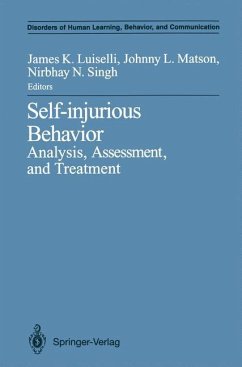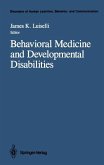This volume addresses the topic of self-injurious behavior (SIB) in per sons with developmental disabilities. Among professionals and the lay public alike, there is little debate over the seriousness of self-injury, its detrimental effects, and the need for therapeutic intervention. At the same time, there are divergent views concerning its etiology and treat ment. Understanding the causes of self-injury, for example, requires an analysis of biological factors, socioenvironmental variables, communica tion competencies, and in complex clinical cases, the interrelationships among these influences. There is also uncertainty with regard to the function of self-injury. Put simply, why would people willingly inflict injury upon themselves? Finally, although there is little disagreement about the necessity to intervene for self-injury, clinicians do not make uniform therapeutic recommendations, and, in fact, considerable dif ferences in treatment selection are common. This fact is most apparent when one considers the ongoing controversy with regard to aversive and nonaversive programming. Our premise for this volume is that a greater understanding of self injurious behavior is dependent upon an empirical research base. Theories of causality must be conceptually valid and capable of being evaluated objectively. Treatment must be functionally determined, operationalized, and replicable across personnel and settings. For these reasons, we have assembled chapters by individuals who are experi enced clinicians and researchers in the fields of psychology, medicine, psychiatry, education, psychopharmacology, and developmental dis abilities.
Hinweis: Dieser Artikel kann nur an eine deutsche Lieferadresse ausgeliefert werden.
Hinweis: Dieser Artikel kann nur an eine deutsche Lieferadresse ausgeliefert werden.









